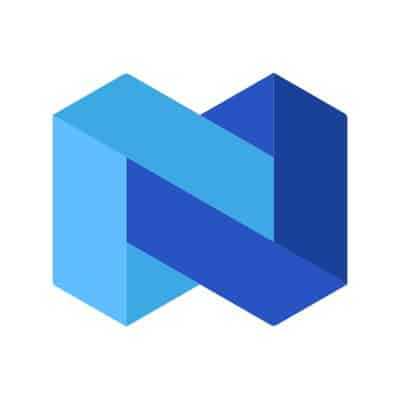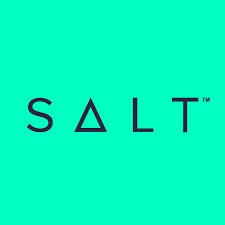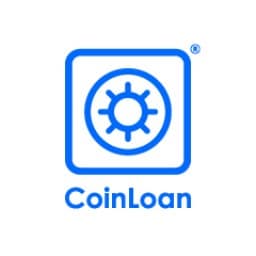
Start here to compare the top platforms for obtaining a crypto-backed loan and their individual requirements.
Funds can be obtained without a credit check and are generally funded the same day the smart contract is agreed to. Each platform varies in the digital assets it accepts as collateral as well as how it funds loans. Please note that all loan products are not available in every state. Each button leads directly to the company’s website where you can learn more about their individual lending policies.
LTV
20% - 50%
APR
0%+
FEES
$0 Origination Fee
- Instant approval
- No paperwork to fill out
- No impact on your credit score
- Users cite being margin called and liquidated during volatility
LTV
50% - 90%
APR
varies
FEES
1% - 5%
- Low minimum loan amount ($100)
- Unlimited loan terms
- Receive loans in USD, EUR, CHF, GBP, +more
- Maximum loan duration is 364 days
LTV
20% - 70%
APR
0.52%+
FEES
$0 Origination fee
- Flexible loan terms of between 12 and 60 months
- 100% Comprehensive insurance coverage
- No bank account necessary
- Individual loans not available in AL, DE, ID, LA, MI, MS, MT, VT, WA, WV, Canada, United Kingdom, Australia
LTV
50%
APR
9.9%
FEES
2%
- You do not create a taxable event
- No credit check if minimum collateral met
- Paid back anytime with no penalty, no monthly payments are required
- $1000 minimum
- Digital assets are not protected
LTV
20% - 70%
APR
varies
FEES
1% of loan amount, 50% discount if paid with CLT
PROS
- Low minimum loan amount ($100)
- Flexibile loan terms of between 1 month and 3 years
- Insured custodian
CONS
- Interest and fees charged can add up on large loans
- A smaller platform when compared with the others on this list
LTV
20% - 70%
APR
varies
FEES
1% of loan amount, 50% discount if paid with CLT
- Low minimum loan amount ($100)
- Flexibile loan terms of between 1 month and 3 years
- Insured custodian
- Interest and fees charged can add up on large loans
- A smaller platform when compared with the others on this list
LTV
35% - 50%
APR
7.25%+
FEES
.5% - 1% origination fee
- Flexible loan terms of between 3 months and 3 years
- Commercial and business loans available
- High minimum loan amount ($10,000)
- Higher rates and fees than other platforms
- Individual loans not available in all states
How to Choose a Bitcoin Lending Platform
Choosing a Bitcoin lending platform is a lot less complicated than it may seem once you have the right resources in hand. That’s because the DeFi industry is rapidly maturing, along with the tools you need to access a crypto loan.
With this guide to crypto lending platforms, you’ll get an A-to-Z education on everything you need to know before successfully applying for, and receiving, a Bitcoin loan.
Bitcoin lending platforms are more accessible than ever. That’s because, after more than a decade in operation and global use, Bitcoin has sufficiently proven itself to be a viable asset.
- BTC is a digital asset capable of fostering a thriving worldwide economy based on decentralized value.
- Decentralized finance applications, such as BTC lending platforms, have locked more than $25 billion worth of assets into the financial ecosystem.
Owing to the steady growth and maturity of the blockchain space, choosing a platform for your first (or repeat) crypto lending experience is a breeze.
First, you will need to ask yourself a few questions about your crypto loan needs:
- Are you a borrower or a lender? Are you an individual or an institution?
- Do you want to borrow crypto, cash, or a mix of both?
- If you’re a lender, do you want to loan crypto, fiat, or stablecoins?
- Are you comfortable with peer-to-peer blockchain lending, or do you prefer having a centralized service between counterparties?
- What are your needs and financial goals?
The best crypto lending platform for you will depend on how you answer these questions, as each serves a specific client base.
Once you have the answers to these questions, you’ll want to choose a trusted crypto lending platform that is well-reviewed, established, and backed by an experienced team.
How to Get a Loan Through P2P Blockchain Lending
A blockchain lending platform enables you to get a loan without the formal application process, credit check, and other complications associated with bank loans. Two types of blockchain lending platforms are available today:
- Centralized lending platforms – These platforms do not offer true peer-to-peer crypto loans.
- P2P lending platforms – As the name implies, these platforms offer peer-to-peer crypto loans without intermediaries.
The difference between centralized and peer-to-peer lending platforms really boils down to whether there is a financial institution sitting between you and the other party
If you are a borrower on a centralized platform, then you will never directly deal with the lender(s) from whom the loaned assets originate. However, if you’re a borrower seeking a crypto loan via a P2P blockchain lending platform, then you will deal directly with the lender, albeit regulated with the rules and mechanics hardcoded into the platform.
While this difference may seem slight, it is more akin to a paradigm shift in the global financial industry than to what micro-financing promised but ultimately failed to deliver. Traditional financial institutions and lenders are unable to provide custom loan solutions that are tailored for every need out there—especially if those needs include crypto loans.
Initiate a Smart Contract or Select an Existing Loan Offer
A P2P crypto loan enables borrowers and lenders to iron out the details of a loan agreement that works for both parties before setting the agreement in stone using a blockchain-based smart contract. Borrowers can set their own loan terms or choose from an existing loan offer, depending on the platform.
Once the smart contract is set to run, it will not favor one party over the other. Instead, it will resolutely perform its task of arbitrating and observing the loan term and overall agreement, holding both parties accountable until the smart contract and loan run their course.
Getting a loan through a P2P blockchain lending platform is also faster and easier than one might expect from a personal lender. The reason is that while the lending platform itself acts as a trusted witness and executor to the loan, the rest of the process happens as quickly as borrowers and lenders are able to make them happen.
Deposit Collateral for Easy Approval
Whereas getting approved for a bank loan may take days, a P2P blockchain loan can happen within minutes (instantly, in some cases). As a borrower, all you have to do is put up a collateral amount, which means you will deposit a certain amount of crypto assets as proof that you have the means to pay your loan back.
Compound allows users to create decentralized money markets where they can create their own loan offers or choose the loans offered by others. Platforms like Compound and MakerDAO‘s Oasis exist at the most decentralized end of P2P loans, but there are others that strike a greater balance between traditional loan products and decentralized ones.
CoinLoan is as close to a one-click P2P crypto loan solution as there exists in the world today. The platform itself acts as a link between borrowers and lenders and securitizes the loans by required collateral from borrowers.
Crypto Interest Rates Explained
So, you may be wondering where the benefit for both the platforms and lenders offering the loans comes from. That’s where interest rates come in. Just as with any traditional loan product, crypto loans come equipped with an interest rate attached.
In essence, the interest rate, often quoted as APR (annual percentage rate), is the fee a lender charges for the service of loaning the borrowed asset.
If there was no interest rate, then you, the borrower, would simply pay back the amount borrowed—no more, no less. Instead, the loan’s interest rate makes the loan profitable for the lender.
An interest rate is calculated based on how much you are borrowing, what your collateral deposit amount is, how long you need the loan for, and the repayment intervals of the loan agreement. Generally speaking, the longer the loan term or the higher your LTV ratio, the higher the crypto loan interest rate will be.
Crypto Loans and How They Affect Your Credit Score
In the traditional financial world, one late or missed payment can badly affect your credit score for up to seven years. And the lack of a good credit score can make it difficult to qualify for traditional means of financing.
The crypto lending industry has no such credit score requirements and is in no way linked to your existing credit report. Not only is there no link to your credit report and score, but some decentralized lending platforms don’t even require your identifying information to get started.
That’s because the core security feature of crypto lending platforms is collateral. When you deposit cryptocurrency as collateral for a loan, you will be required to deposit roughly double the amount of the loan you are requesting.
The ratio between the collateral deposited and the loan amount, otherwise known as the LTV ratio, will be about 50%.
For most lenders and borrowing platforms, this is a comfortable level of risk to assume because it means that there is a favorable likelihood the loan amount will be recovered—even in the event of the borrower defaulting on the loan.
Owing to these mechanisms, crypto loans do not affect your credit score.
FAQs About Crypto Loans
Crypto loans are new when compared to traditional lending methods that have been around for more than a century.
This can make them seem a bit intimidating to use at first. But, with more clarity on what they provide, how they do it, and how secure they really are, you’ll find that they’re quite simple to qualify for and receive.
What Does the Crypto Lending Industry Provide?
The crypto lending industry can provide cryptocurrency-backed loans of cash, cryptocurrencies like Bitcoin, and stablecoins like USDT.
Cryptocurrency-backed means that the loans are collateralized with crypto—put simply, borrowers deposit cryptocurrency to secure the loan by proving they can repay it.
There are many reasons to get a crypto loan, but the principal reason is that they enable you to use your current cryptocurrency holdings to procure additional assets.
Whether you’re using your crypto-collateralized loan to borrow Bitcoin, cash, or other cryptocurrencies or stablecoins—going the crypto-collateralized route means you don’t have to sell your digital assets in the first place. This has the twofold purpose of allowing you to still earn gains in the cryptocurrency market while qualifying you for the added liquidity of a loan.
Are Banks Using Cryptocurrency?
Some of the largest banks and financial institutions in the world have implemented cryptocurrency or have plans to do so in the future. Many have done so by integrating platforms such as Ripple and Stellar, while others are developing their own in-house cryptocurrencies.
Among the many banks that already support cryptocurrency solutions are JP Morgan, Goldman Sachs, Bank of America, Santander, and Mitsubishi UFJ. While dozens of banks are using cryptocurrency, the few highlighted here represent some of the top banking institutions in the world.
Are Crypto Loans Legit?
Because cryptocurrency loans are fairly new, they are met with skepticism by some who wonder whether they are legitimate. Crypto loans are legit, but not just because they’re a great way to keep from selling your cryptocurrency altogether. They’re legit because many cryptocurrency loans are regulated by institutions like the New York Department of Financial Services. While such regulation isn’t always the case, especially when your loan originates from a fully decentralized lending platform, it most certainly is when you apply for a loan through a reputable company.
Nexo, another popular crypto lending platform, insures every wallet for up to $100,000,000 with insurance giant Lloyd’s of London.
Even when there is no third-party insurer in place, crypto loans easily maintain their legitimacy by implementing smart contracts. A smart contract is a program designed to maintain and perform predefined actions on a blockchain.
Once a loan agreement is set into a smart contract and made to run, nothing can stop it, influence it, or otherwise keep it from holding both parties responsible for their end of the agreement.
What is the Best Platform for Bitcoin Loans without Collateral?
To borrow crypto, almost all crypto lending services and platforms require some form of collateral. That collateral is most often posted in the form of Bitcoin, but most of the platforms out there today accept some variation of the top-ranked cryptocurrencies, stablecoins, and fiat currencies as collateral.
If you want to borrow Bitcoin or other cryptocurrencies without collateral, there are a few options emerging from the mist.
One of them is Atlendis, which offers a no-collateral loan that acts as a revolving line of credit. It says that the borrower only has to pay a liquidity fee on unused capital in their own liquidity pool.
Another is Aave Flash Loans, but these are specifically designed for developers with deep knowledge of the Ethereum blockchain and smart contracts.
The Most Trusted Crypto-Backed Loans
Crypto loan options are proliferating as the crypto lending industry becomes more mainstream both within the blockchain community and beyond. But which are the most trusted crypto-backed loans today?
Trust is a big word. It means that the platform will not only provide you with a loan but that it will also safely store your collateralized funds and keep your private data under lock and key.
Thankfully, there are more than a few trusted crypto loan options out there:
-
- Nexo – No crypto lending service has done more to popularize cryptocurrency loans than Nexo has. Their instance crypto credit line makes getting a crypto loan incredibly simple and absurdly fast, all without credit score requirements of any kind.
- YouHodler – YouHodler is as close as you can get to a crypto lender that makes crypto loans without collateral possible. YouHodler’s 90% LTV Ratio option makes it possible to deposit very little collateral while still receiving the loan amount of your dreams.
- SALT Lending – SALT operates on the Ethereum blockchain and lets borrowers take out loans of between $1,000 and $25M for up to 60 months, and all loans are insured against theft and fraud by Lloyd’s of London syndicates. It provides both individual and business loans.
- CoinLoan – CoinLoan provides instant loan approval with no credit checks. You must verify your identity and deposit crypto, stablecoins, or fiat collateral before you can get your loan.
Owing to the complete absence of traditional credit checks in their processes, crypto lenders typically approve your loan instantly or within minutes. Instead of selling your Bitcoin for cash, collateralize it to receive a crypto loan and keep HODLing.
Want to stay informed about the best options for getting a crypto loan? As new players enter the field, or existing crypto lenders better their offerings, we’ll update this list to keep you ahead of the curve.








